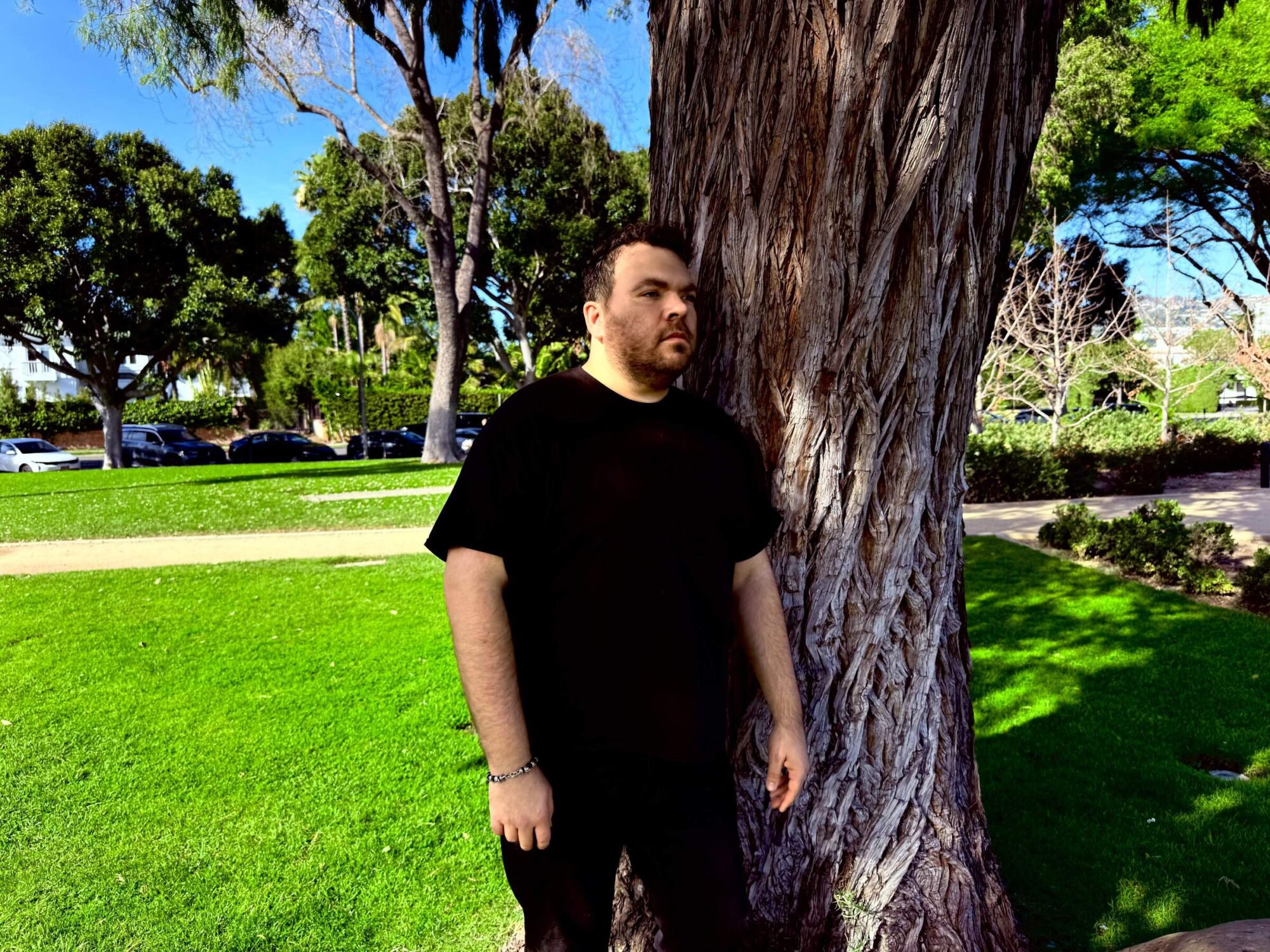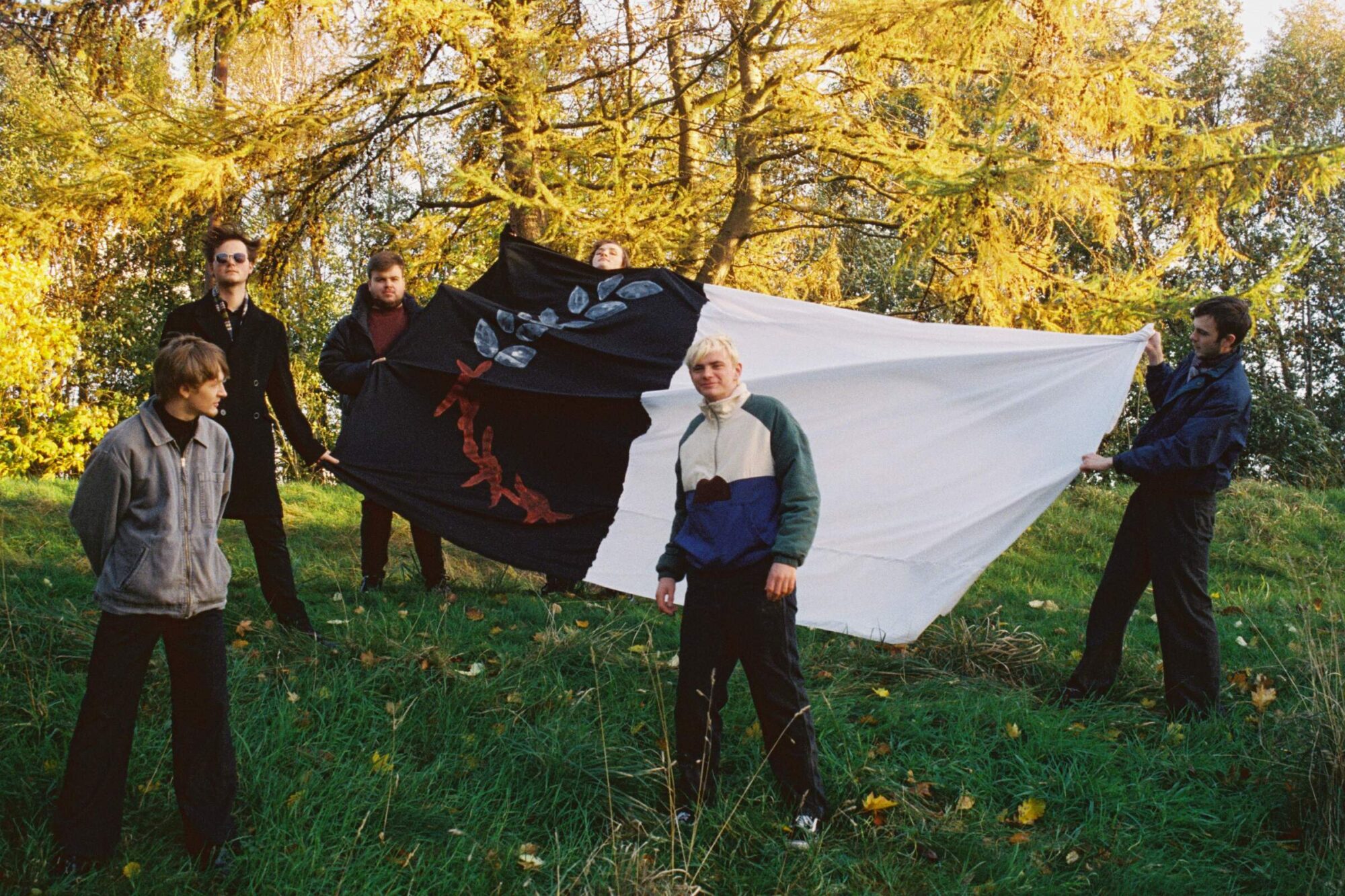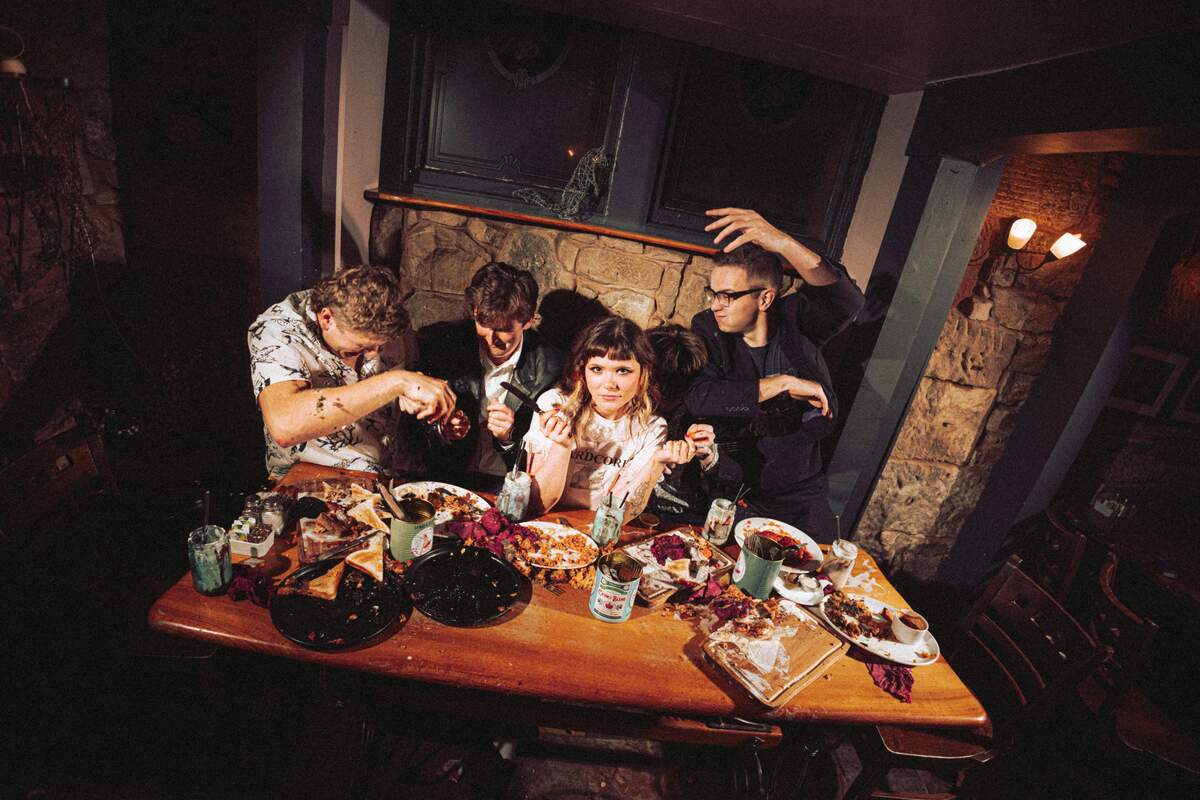Faithful Breath interview
Faithful Breath were a Progressive Rock band from Bochum, Germany. They self-released highly collectible DIY album Fading Beauty in 1974. Many other albums followed, as well as the change of musical direction.
Where and when did you grow up? Was music a big part of your family life?
Jürgen Weritz: I am a typical child of the German economic miracle, grew up in a middle-class family in a small suburb of Bochum, the central Ruhr area, which could not be better for children and young people. The terrible war had been over for several years and the economic upswing began, nothing was missing, the family was intact, we children grew up in a fantastic time. Music was very important to my family. For my siblings and me there were piano lessons and classic and popular pop music were part of everyday life. My older sister bought her first records (“Hello Mary Lou” …) and I got my first record from friends in France when I was 10 (“Wooly Bully” by Sam the Sham and The Pharaohs). From then on, the music never let me go.
Manfred von Buttlar: As my father worked in a mining institute in New Mexico I was born in the USA, we came back to Germany at my fourth birthday. My parents were quite musically, my father had a pitch perfect, and he was a good piano player. There was much singing in our family, and my two brothers and I began playing instruments at the age of 6 or 7. So (classic) music was an important part of family life, but never more than a hobby. But at that time there was great development concerning rock- and pop-music, it was the time of great bands like Deep Purple, Pink Floyd, Led Zeppelin, Cream, Genesis etc., and my interest in actual music grew by experiencing their wonderful music.
When did you begin playing music? What was your first instrument? Who were your major influences?
Manfred von Buttlar: At the age of 6 I had my first classic piano lessons with a very old piano teacher, and I remember it was not very funny. When I was 10 we moved to the Ruhrgebiet, and my parents found a very good and motivating teacher. From now on I played piano unsolicited, I also took some lessons on a church organ, and for some years I played the harmonium in a little church in Bochum. My parents also offered Cello lessons (as a second instrument for me), but this was not really my thing. But playing guitar by imitating guitar player idols of contemporary bands (Deep Purple, Led Zeppelin, Taste, Cream…) was much more funny and satisfying. And one Christmas Jürgen’s drums have been the “signal of the launch” for a promising new band …
Jürgen Weritz: When I was about 7 or 8 years old, I “had” to play the piano, but I didn’t really enjoy it. When I was 14 or 15 I had the idea of starting a band for the first time. With magazines like Bravo or on holiday in Holland with the Muziek Expres you had your idols. And there was a lot: The Kinks, Small Faces, Manfred Mann, Beatles, Stones, Eric Burdon, Traffic, Pink Floyd and many others – they were all important for me and somehow influenced me all.
When my family moved to the neighboring town of Witten at the end of 1967, we had a big house there and my father “made the mistake” a year later and gave me drums for Christmas! What a lucky surprise, the cube had fallen. I immediately called my friend Manfred ”Carl” von Buttlar and it was clear: we were going to start our first band!
What bands were you a member of prior to the formation of Faithful Breath?
Jürgen Weritz: At first there was a five-boy-group called “The Crash” consisting of my brother (bass), my friend “Carl” (borrowed Farfisa organ), Roland Senff (rhythm guitar), Martin Herberg (red solo guitar, he became a famous professional musician later for many years!) and myself. We covered songs of bands like The Animals, Who and Cream … but the end of this first own band came as early as 1969, when we, as the “opening act”, completely messed up our gig at the first self-organized festival in our school. So that was the first and only gig from “The Crash”. Afterwards we formed “Dog Breath” as a three-boy-band with Carl, my brother and me, played songs from The Taste, The Nice and others. With “Dog Breath” we played at the second school festival in June 1970. Some months later a very good playing guitarist joined to us, and the new group was called “Mama Werwoll”. Our first and only gig was in January 1971 at our third school festival. In the following year the guitarist more and more preferred jazz, which was not favored by the other members. And when the drummer of the friendship band “Faithful Breath” was drafted into the Bundeswehr, the band kindly asked if I could also play with them. Oh yes, I could! I knew “Faithful Breath” from our festivals, the band was great, well known as local heroes in progressive rock, and from then on I was part of this extraordinary band. In my first time with the band there were 3 guitarists, a bass player, a saxophonist who also played the flute and two guys did the vocals. A great time with a great band. For me there was only a little sleep and some school besides music with “Dog Breath” and “Faithful Breath”. Every day I went to rehearsals, sometimes only one band, sometimes two bands in one day, five days a week.
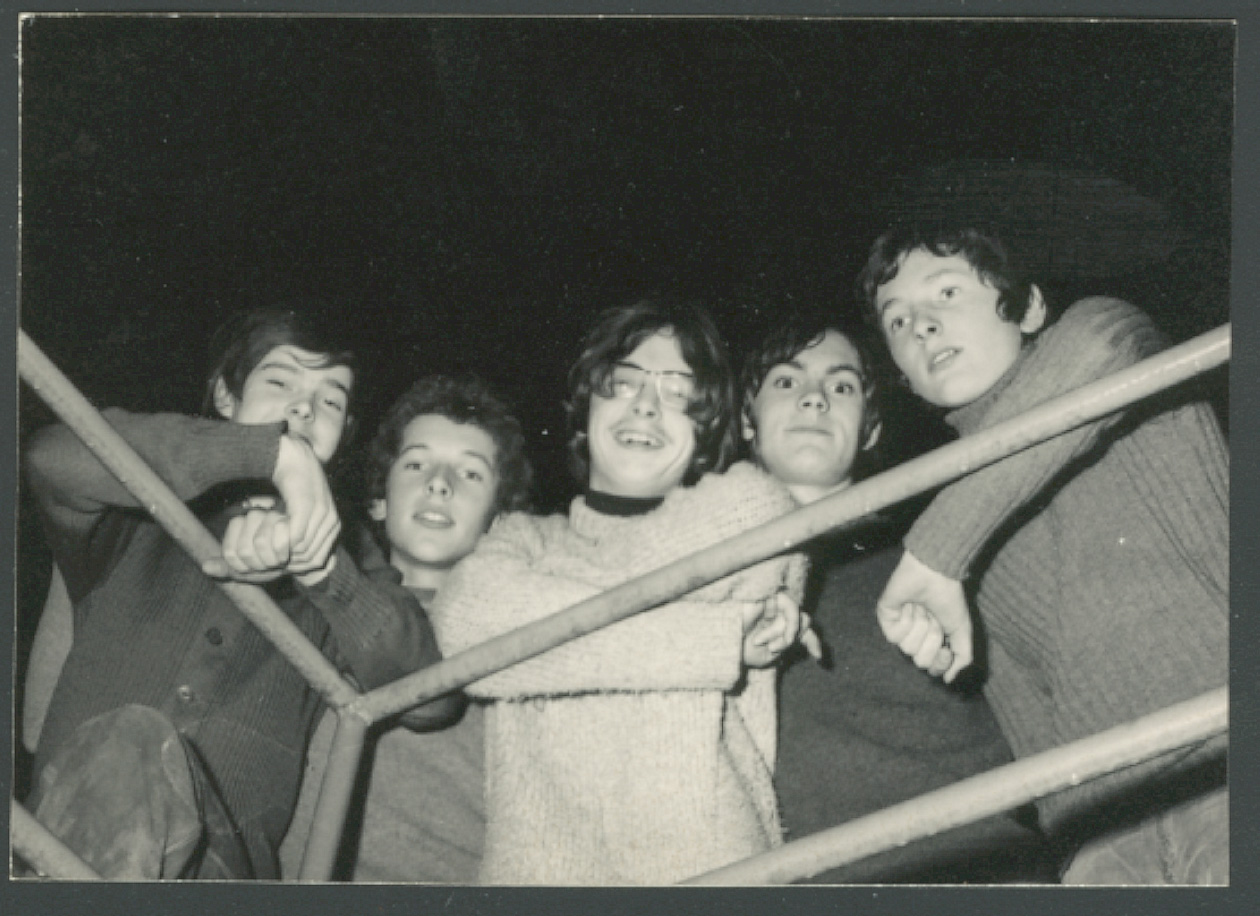
After a while the saxophonist fell ill and a guitarist left the band, so that Carl came to “Faithful Breath” and set completely new accents with keyboards. “Dog Breath” dissolved and “Faithful Breath” took off with Heimi (vocals & guitar), Piet (bass), Carl (keyboards, vocals) and me. That was about 1972/73. In 1975 we found the rock-singer Jürgen Renfordt, some months later the bassman Piet left the band, and we decided to continue as a four-men-team.
Can you elaborate the formation of Faithful Breath?
Jürgen Weritz: In 1966 the band started with “The Magic Power”, in the autumn of 1967 they changed the name in “Faithful Breath”. Regarding their musical style, the band started in the style of American West Coast groups, many guitars with extensive improvisations, later it got with their first LP Fading Beauty, a bit Krautrock and with the second LP Back on my Hill it changed to progressive rock music. When Carl, Jürgen Renfordt and I got out in 1981, the band really stepped on the gas with hard rock. Around 1986 they took on a new name with “RISK” and became a really good and professional heavy metal band with several LPs/CDs.
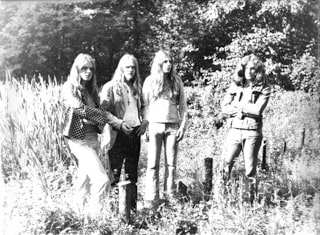
Manfred von Buttlar: Even there was a try to play popular music (“This is My Love Song” on “Back On My Hill”), and this song actually made it into the top ten hit rally of the WDR for many weeks, even Number One for some weeks.
What sort of venues did Faithful Breath play early on? Where were they located?
Manfred von Buttlar: Before all there were local events as school-parties or meetings in our favourite pubs in the near surroundings (Bochum, Witten), part of them were organized by members of Faithful Breath themselves. In the following we were invited to small events in other cities in the Ruhrgebiet and small clubs in the “Sauerland”. Afterwards there have been several clubs, youth centers and smaller halls all over Germany.
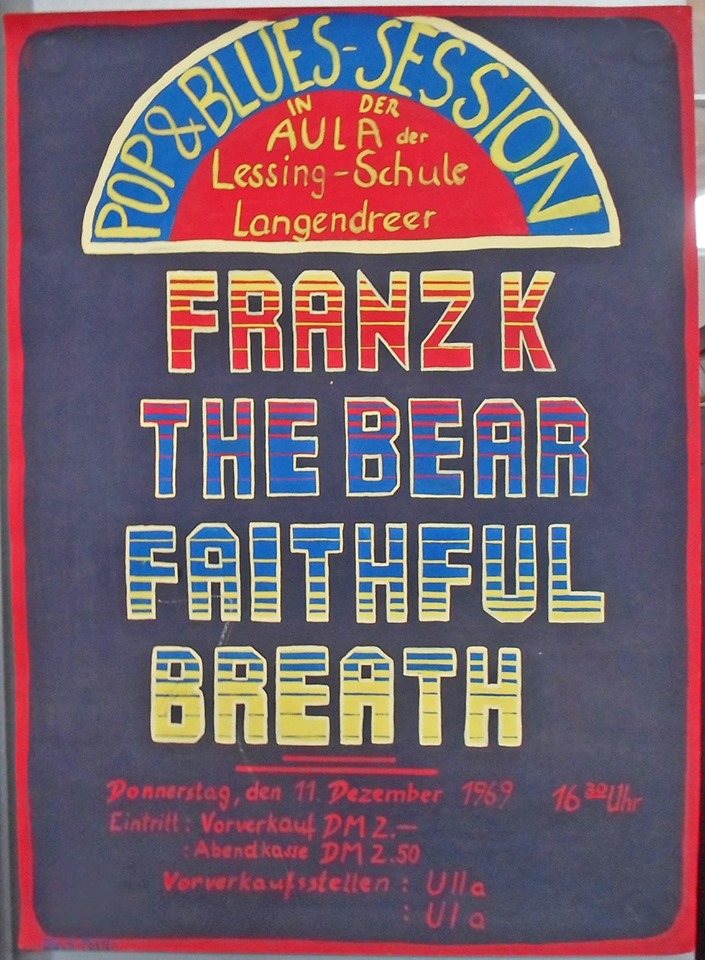
How did you decide to use the name “Faithful Breath”?
Jürgen Weritz: If I remember correctly, “Faithful Breath” and “Dog Breath” have been terms that came to us through songs of Frank Zappa.
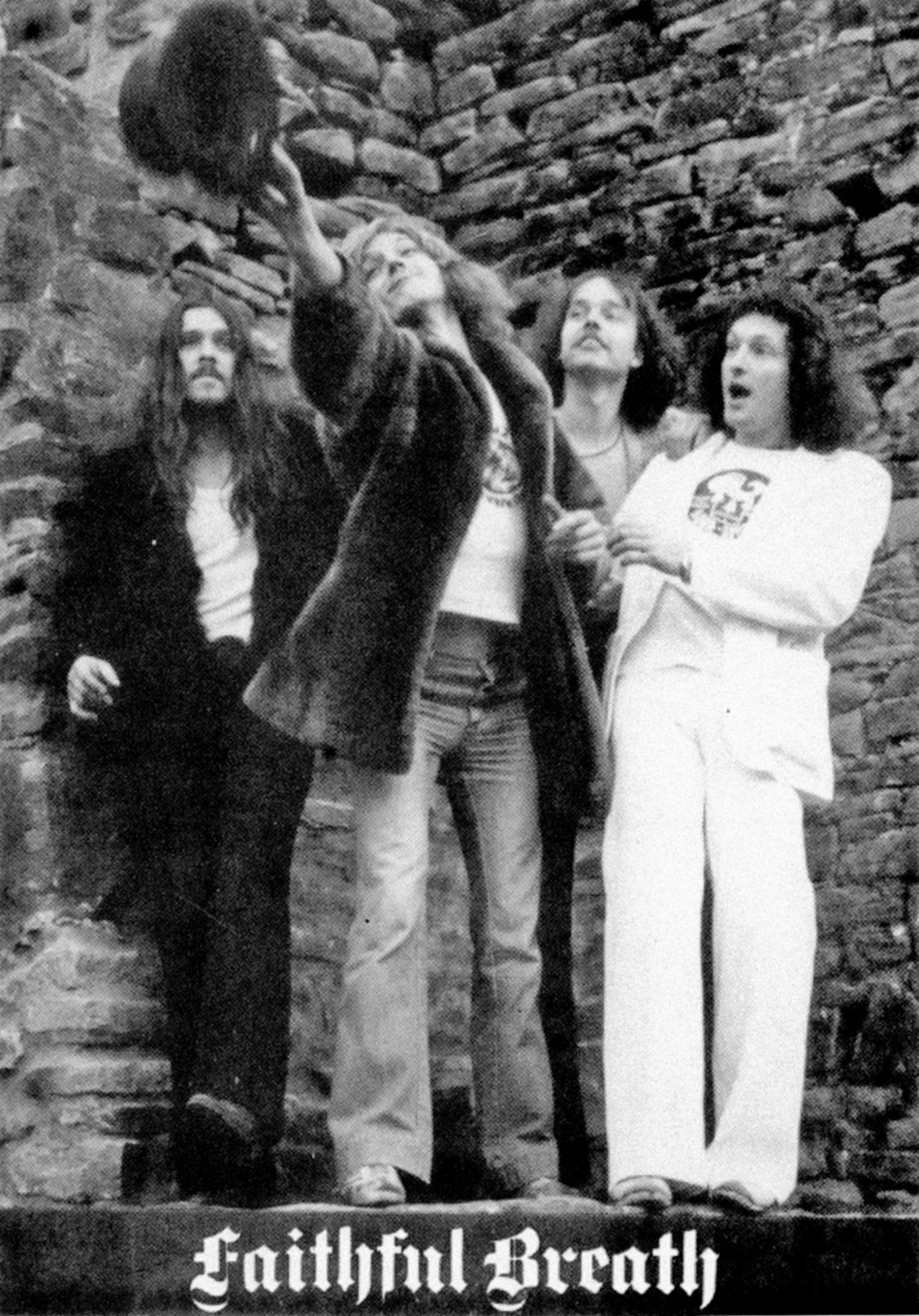
What influenced the band’s sound?
Manfred von Buttlar: After consequently stopping to cover music of the great bands, from the beginning we created our music together, so we were influenced by the favorite music stars of the band members, such as Cream, Jimi Hendrix, Deep Purple, followed by bands as Pink Floyd, Genesis, King Crimson, Emerson Lake & Palmer and so on. But most important was, that all of us liked our music, and that all of us could realize our ideas, inspirations and imaginations. We worked hard for this, and we performed new songs only, if all band members were satisfied with the result.
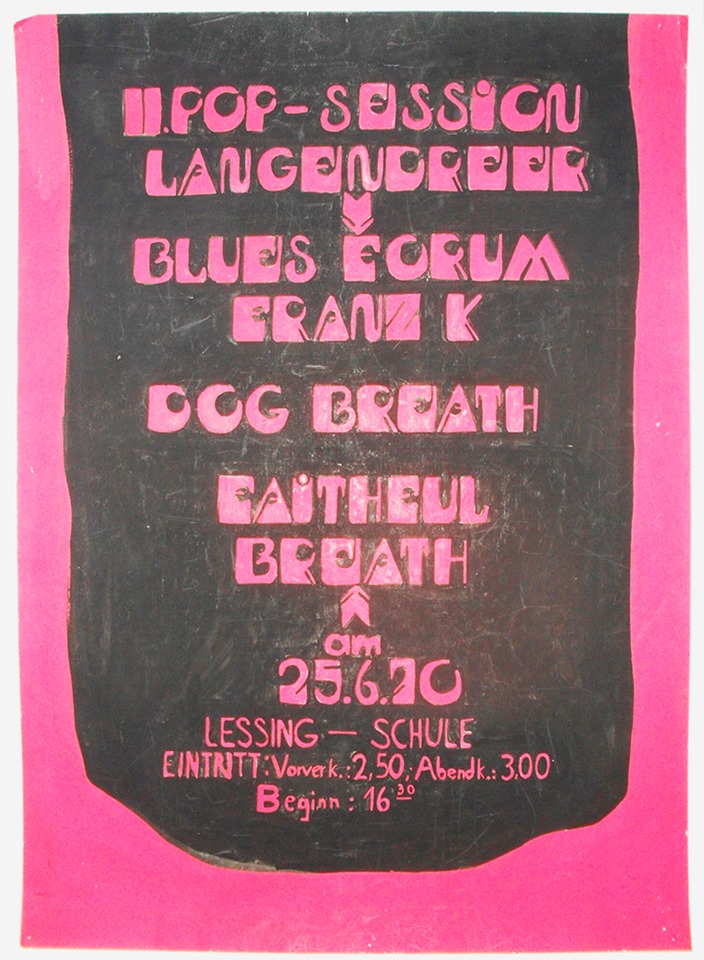
Did the size of audiences increase following the release of your debut?
Jürgen Weritz: Generally it is a little easier to be noticed with a first LP. But we were ambitious and played as often as we could.
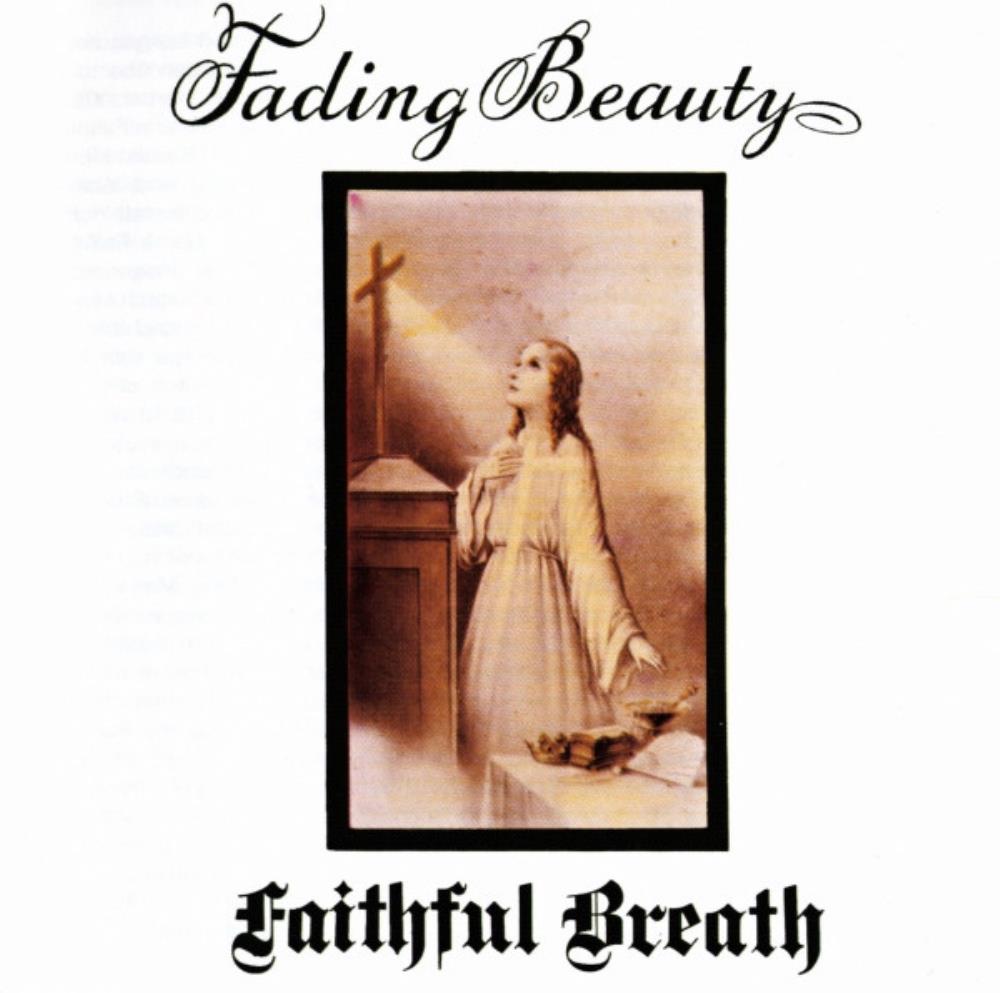
Manfred von Buttlar: The size of audiences increased over the years, the debut was not really the reason for that. But it was easier to inform the organizers of music events about our “style”, and it was a sign of higher professionalism to have an own record release.
How did you release your debut? Was it a private press? How many copies were pressed?
Manfred von Buttlar: One of our members, Boggi Kopec, was not a musician, but his part was always more to organize everything around the band, and he was a valuable critic. He organized the release, he got a loan from the bank and his mother had to act as a guarantor. The band later paid it back, so it was a private press. We all created the cover design and even glued the covers together ourselves.
“‘Fading Beauty’ was literally an in-house production”
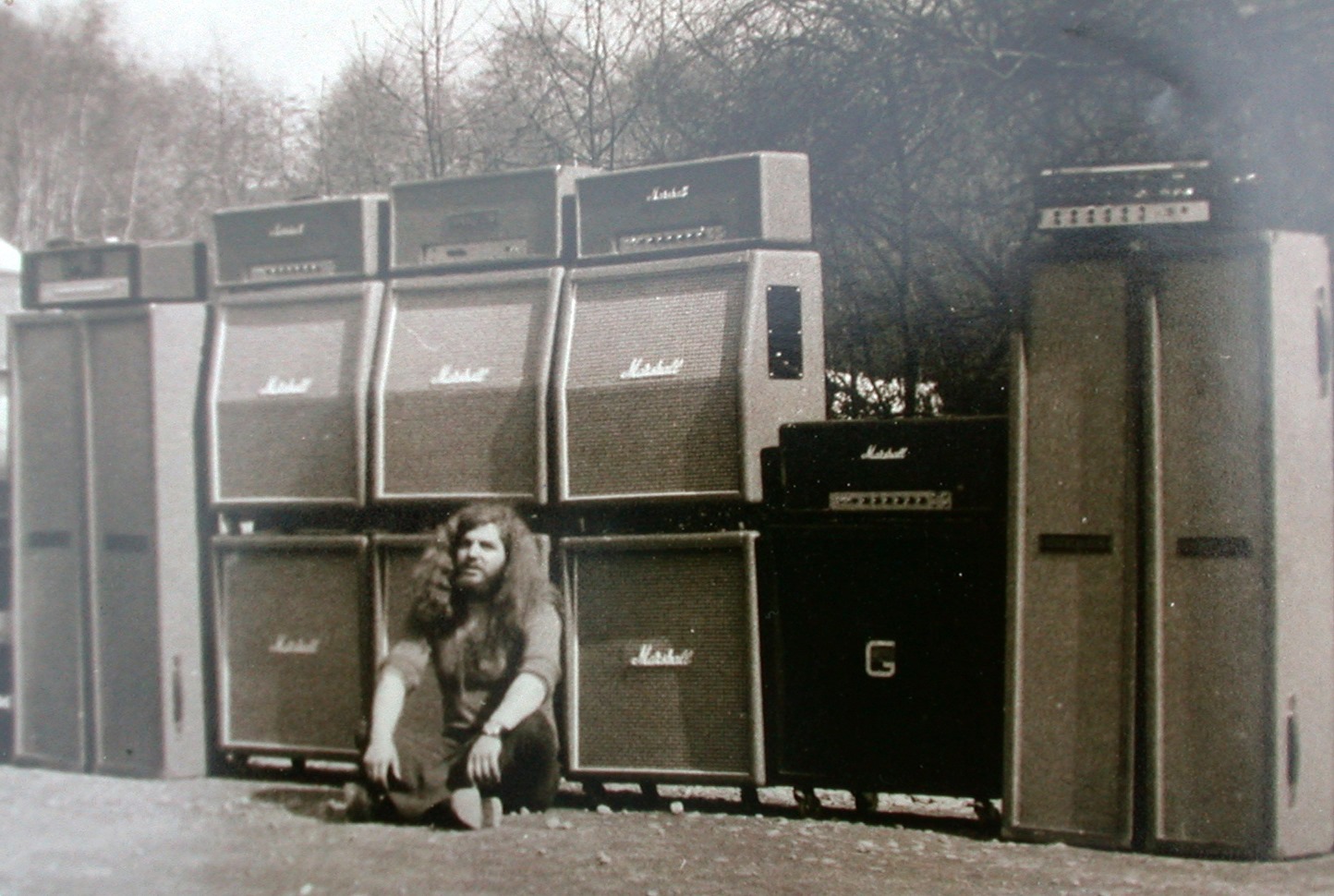
Jürgen Weritz: Fading Beauty was literally an in-house production, through and through “Made in Germany”. Unfortunately, we can no longer determine exactly how many copies of it were made. In-house production should have been about 4,000 to 5,000 copies, then there was a special edition of 1,000 copies for the US market, and a few years ago Garden of Delights started with very carefully produced and lovingly decorated editions.
What’s the story behind your debut album? Where did you record it? What kind of equipment did you use and who was the producer? How many hours did you spend in the studio?
Manfred von Buttlar: After many months of experimenting and working in our rehearsal room and some concerts in the region we had established some new songs, three of them we found should be released on a record. None of the record companies we asked was willing to invest in our music, so we had to become active ourselves. At last we found a small recording-studio in Cologne we were able to pay for, and we collected money to rent the studio for one week. So we had about 30 hours to finish recording and mixing. That was not really enough. In the studio, we used our own instrumentation that was not designed to work in small spaces. You see, the conditions were not optimal.
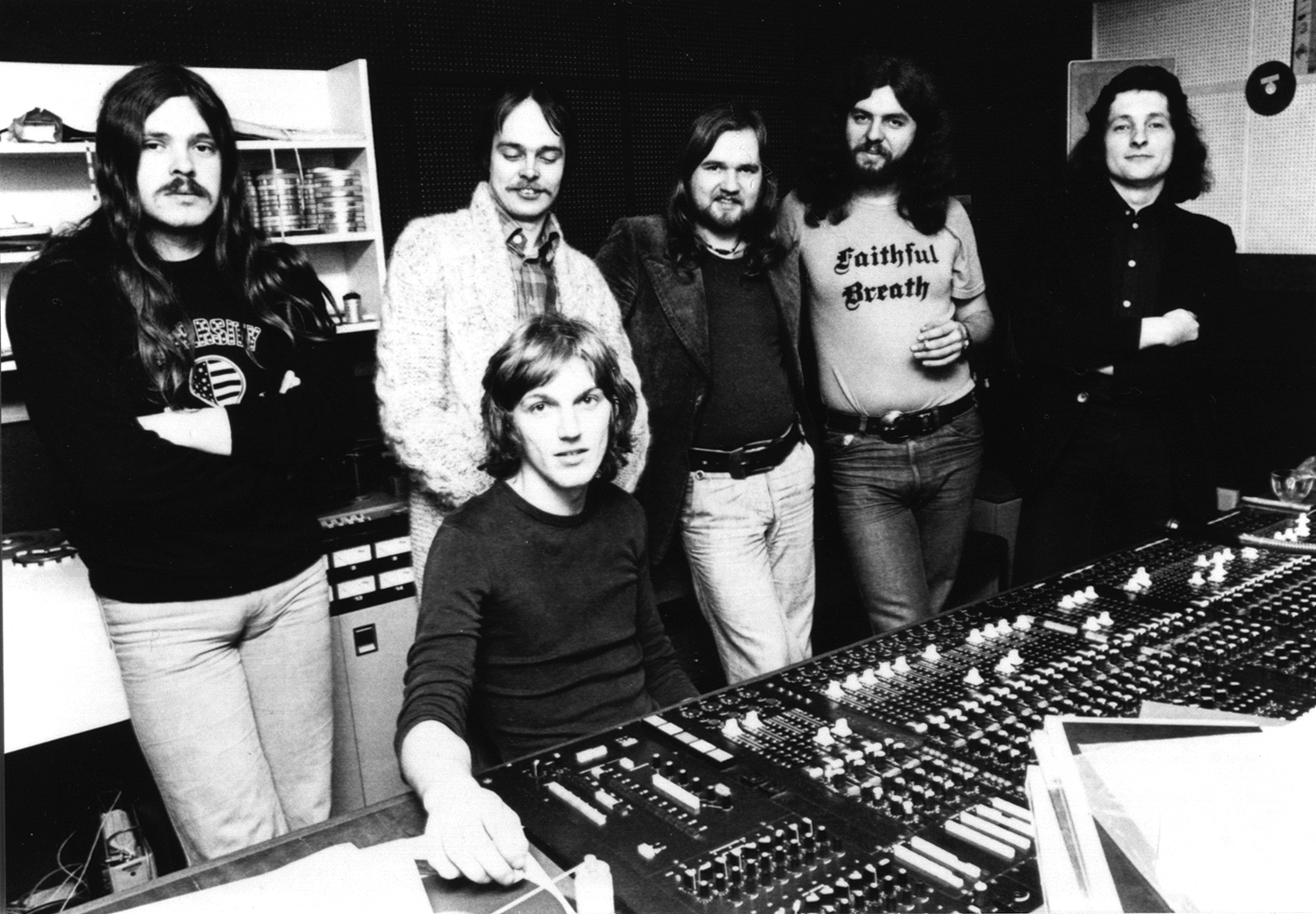
Jürgen Weritz: The recording conditions were anything but optimal. But at least: we had our first own LP, and little by little the first good reviews were published. We were lucky that Winfried Trenckler, a very well-known and important WDR moderator, became aware of us and invited us to an interview in Cologne. It was a milestone for a band like us.
Please share your recollections of the sessions. What were the influences and inspirations for the songs recorded?
Jürgen Weritz: There was no inspiration in the studio because we already knew exactly what we wanted to record. There have been many influences and inspirations in the time before when our music was created.
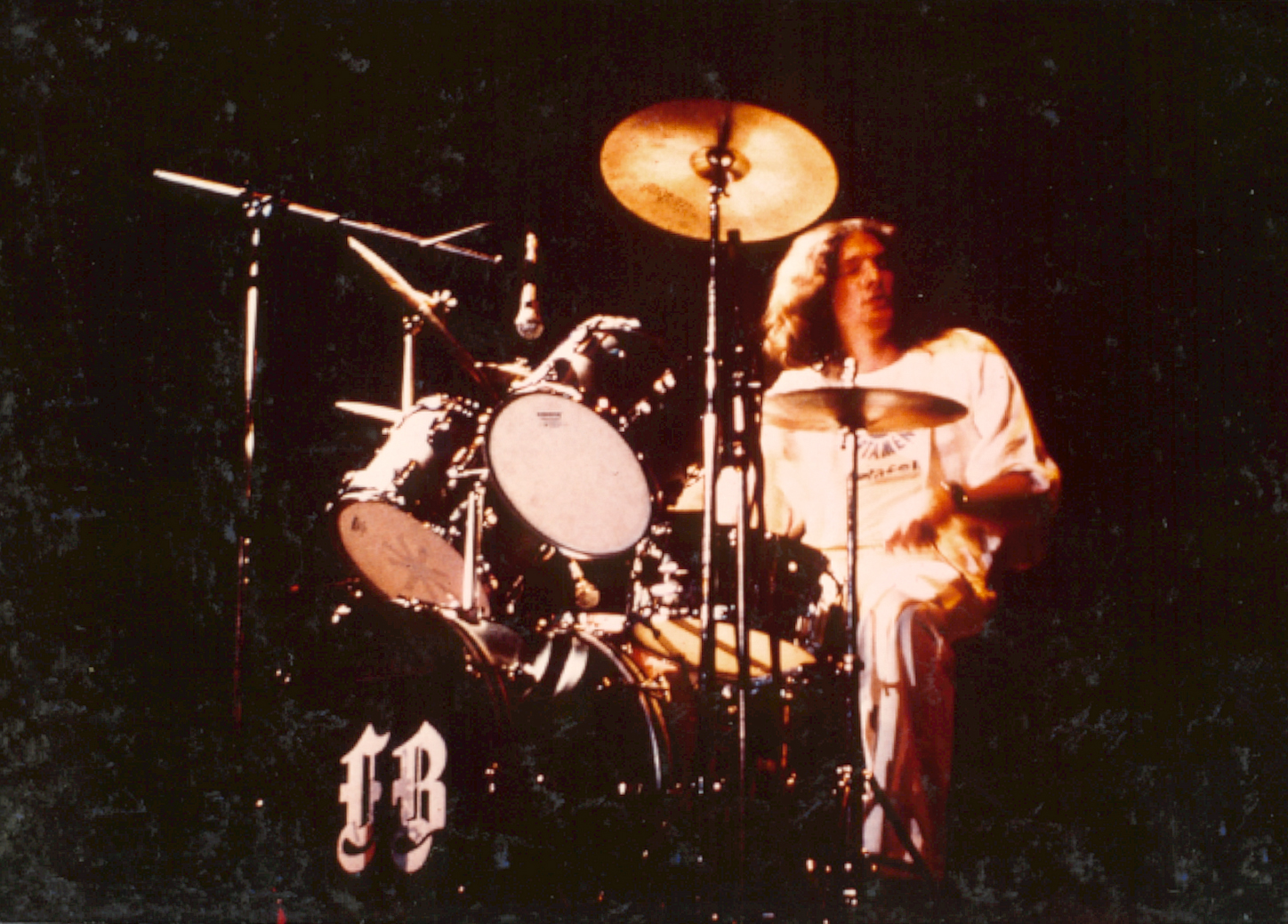
Would you share your insight on the albums’ tracks?
Jürgen Weritz: Why not? We have invested so much time and heart and soul into these very first pieces of music, that music is still part of us today. We certainly would do a lot of things different today, but we were very young and inexperienced at the time.
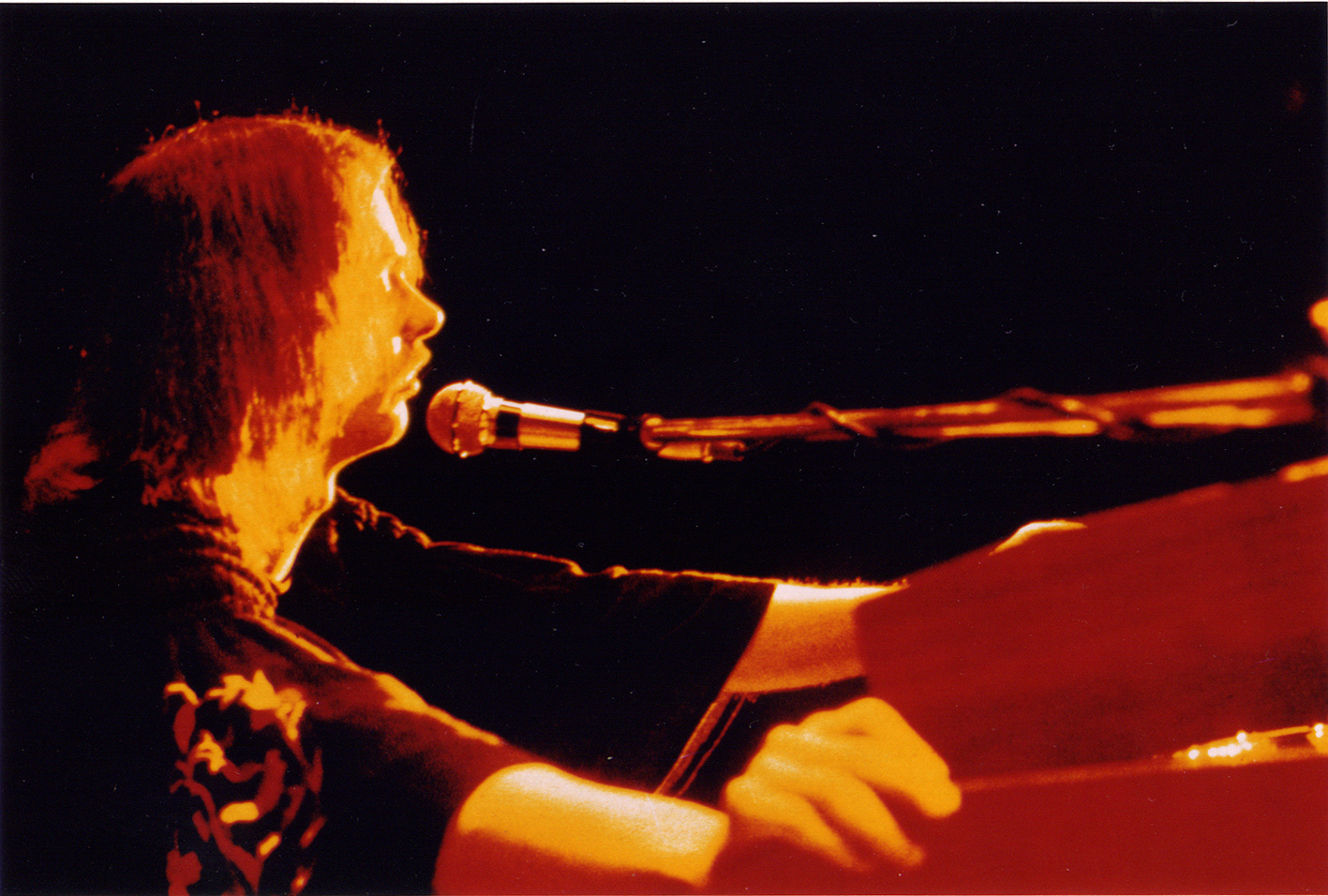
Manfred von Buttlar: As mentioned above we all loved the tracks, and especially on Back On My Hill we all were quite satisfied and proud of the result of our work in the recording studio. Nevertheless none of us was really able to live only from the band’s income, which was a bit disappointing.
Were you inspired by psychoactive substances like LSD at the time of writing the album?
Jürgen Weritz: We were very young and inexperienced at the time, psychoactive substances hardly played a role for us. But I had seen a joint somewhere … if I remember correctly.
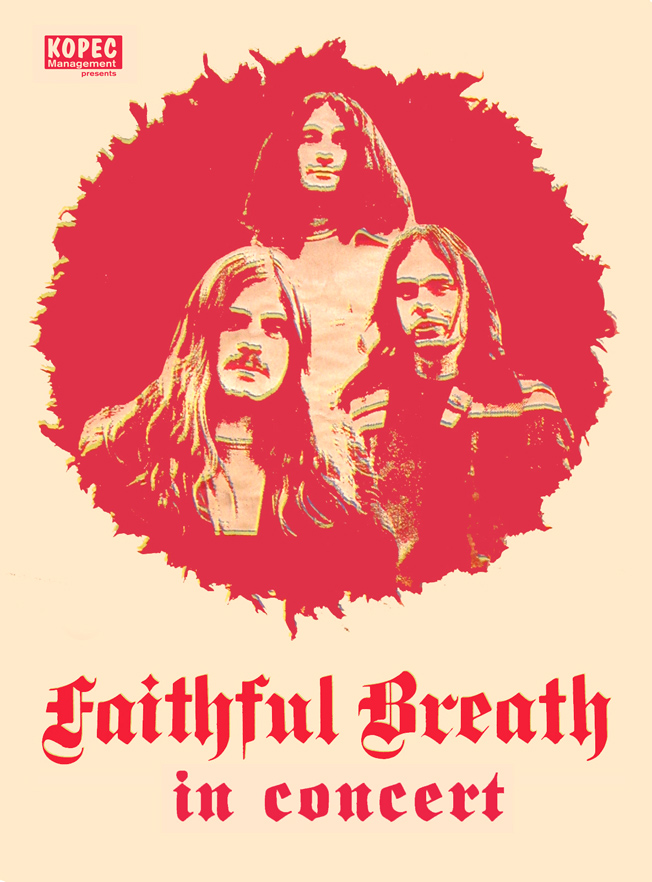
Manfred von Buttlar: No one among the band members used psychoactive drugs as inspiration for writing our music, even alcohol in large quantities was not common. Even during our performances, we agreed that drugs were not accepted by the active musicians.
How pleased was the band with the sound of the album? What, if anything, would you like to have been different from the finished product?
Manfred von Buttlar: Due to limited budget and technical possibilities at that time not all of our wishes could be realized, but at last we were quite satisfied and also somewhat proud of the production. Until this very first time we had absolutely no experience working in a studio, and from today’s perspective, the studio technician had little experience working with a progressive rock band like us. We used our stage equipment and our own instruments, some of it was no optimal solution for recording in a studio. So the sound should have been more compact and mixed in a more balanced way, but for the time being it was quite ok.
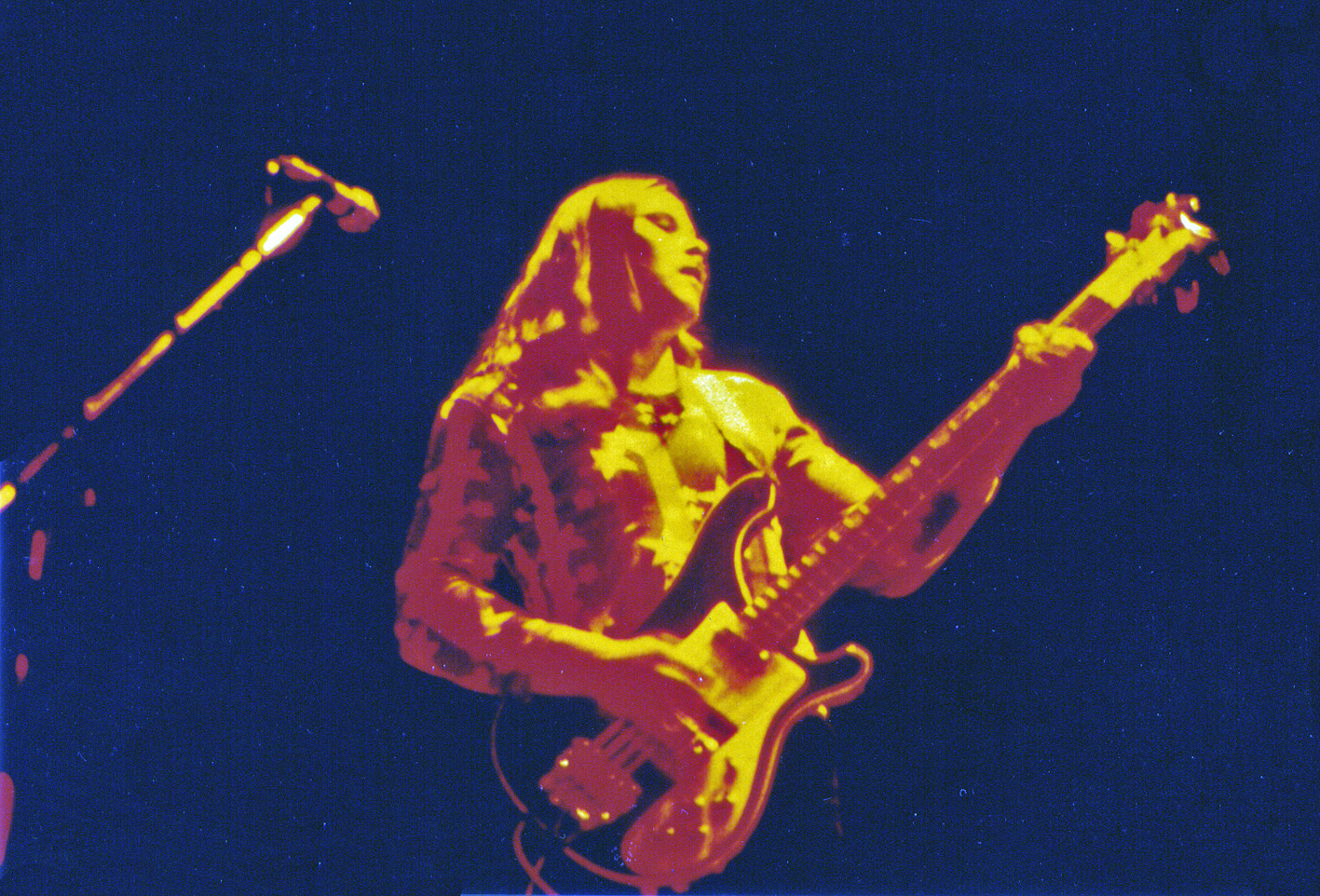
Jürgen Weritz: It was only decades later that I myself read voices from serious critics who praised our music in the highest possible terms. I would have loved to hear that back then.
Was there a certain concept behind the album?
Jürgen Weritz: Our concept has always been to create sophisticated music that primarily convinces us and then also inspires our fans
Manfred von Buttlar: We worked hard to form our songs and sound so that there should be only little difference between the album tracks and the live performance. So there was only small room for improvisation, and we tried to form the songs down to the last detail similar to the former composers.
How about your second LP? Back on My Hill was released on Sky Records.
Manfred von Buttlar: Over the time Boggi Kopec developed from an allround helper to a real manager, he found contacts to the record industries, and he really did manage to find a company (Sky Records) who were willing to invest in a small band. So this time we could rent a more professional recording studio in Bochum and we were able to use studio instruments (such as a mellotrone or a 12-string-guitar) and equipment. And there was an experienced technician who was able to give advisory support about the possibilities of the studio.
The song “Judgement Day” was a favorite track of ours, on our concerts it was the “grand finale”, and we fulfilled our great wish to have it on a record. By the time this track was some kind of masterpiece of the band. After all we were much more content with the overall picture.
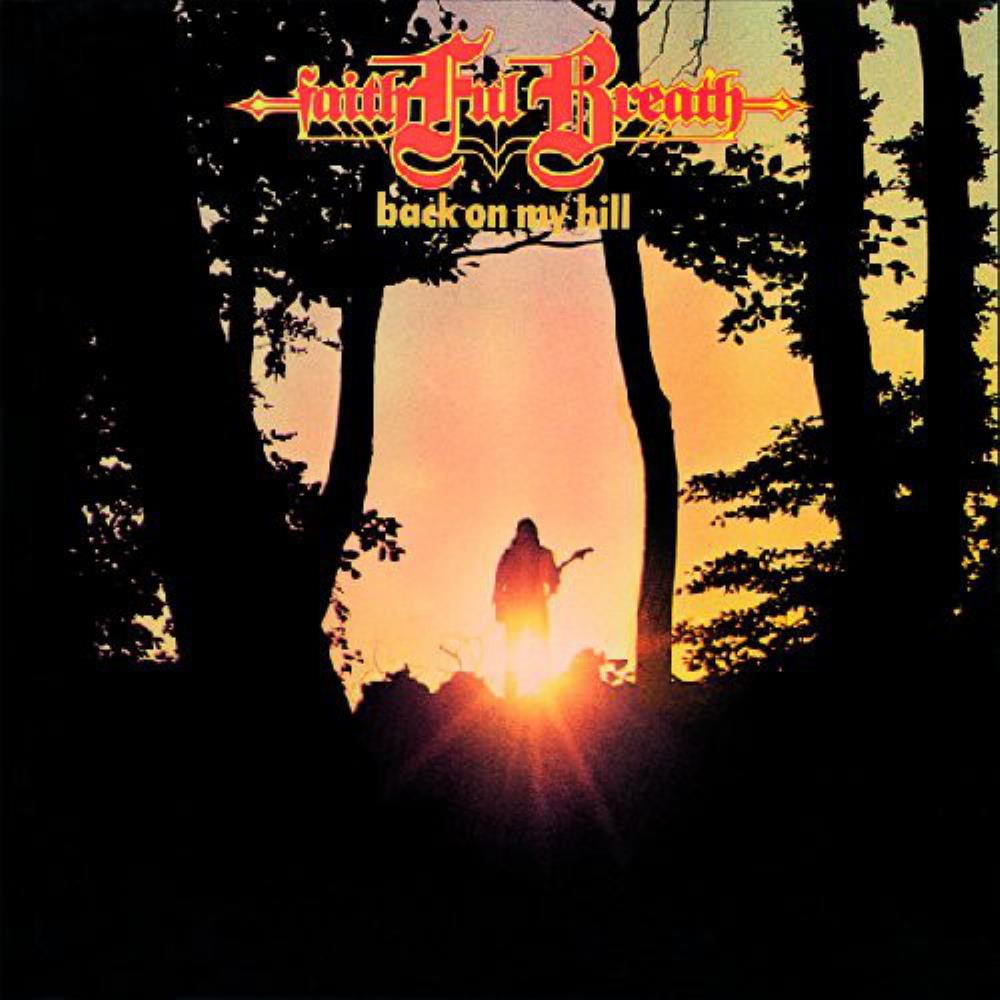
How did you usually approach music making?
Manfred von Buttlar: Regularly we met several times a week for some hours in our exercise room to elaborate on our songs, find new themes and decide upon the next steps. Mostly one of us (especially Heimi) found new racks or melodies, or we had a story or theme we would like to process musically. So sometimes we worked by experimenting with the material, acting with intuition, improvisation and sometimes applying music “rules”, we tried to optimize sound and dynamics of the music. And we developed new tracks only if all group members agreed.
And, after all, we had a certain aim to earn some money with our music, so there were experiments with more “commercial” music (e.g. “This Is My Love Song”…).
Faithful Breath began as a progressive rock band and then from third release shift to hard rock.
Manfred von Buttlar: Mostly the shift is owed to the fact, that there was again a change of the members of Faithful Breath. As in spite of really great effort it was not possible to continue Faithful Breath as a professional band with enough profit that the members could live from it.
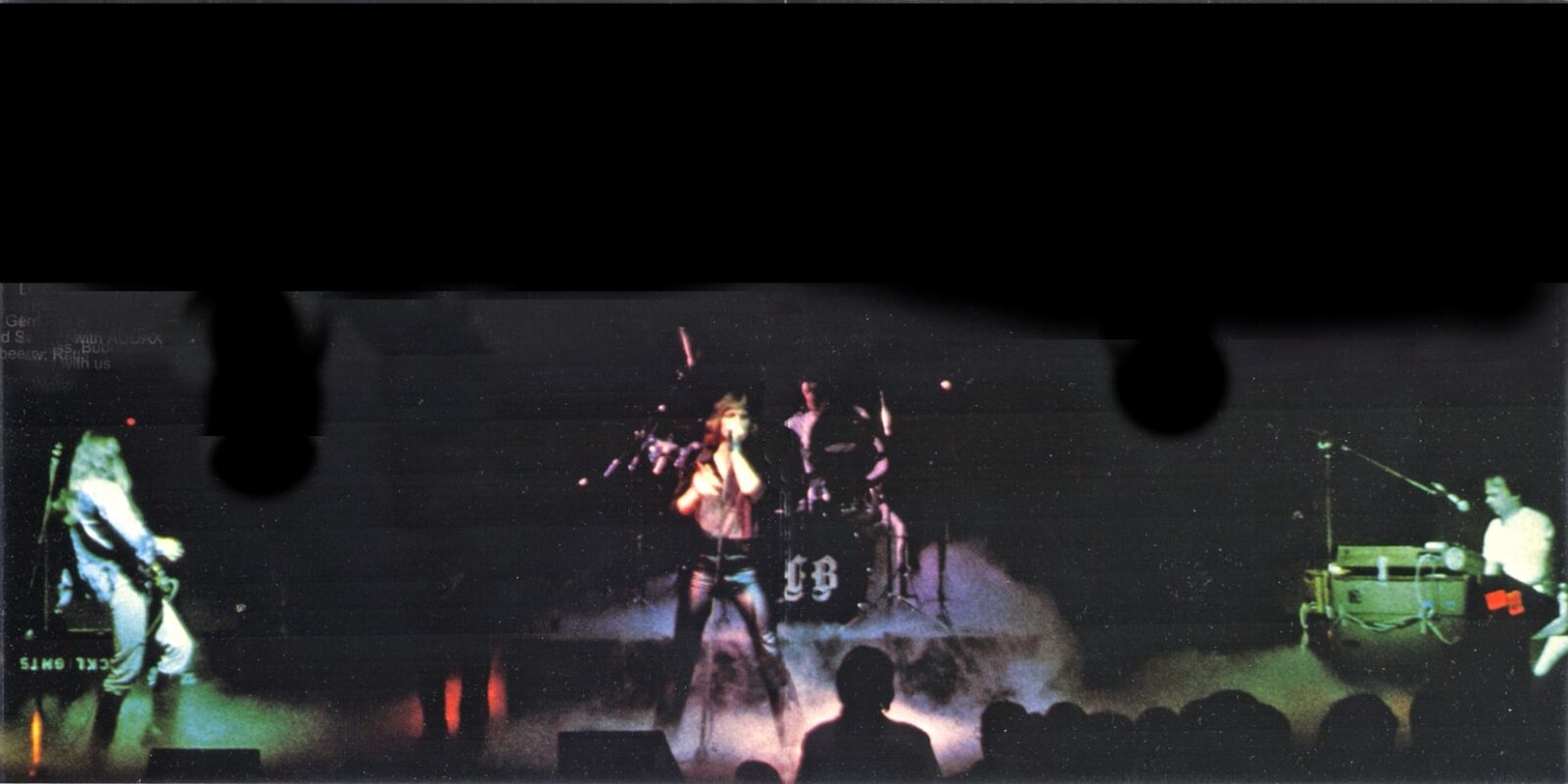
Jürgen Weritz: Three of the musicians were at a crossroads. Decisions for the professional future had to be made. Jürgen Rendorf started a solo career as a pop singer and radio presenter, Carl had finished his medical studies and worked as a doctor, and I had finished my advertising studies and started working for an advertising agency. I almost started a job at Paiste, one of the best cymbal and gong manufacturers in the world, but I couldn’t get the salary there as advertised.
Heimi and Boggi remained loyal to the music and started again with new guys. And ultimately Boggi managed to assert himself as a extremely successful manager in the business. There was hardly a heavy band at that time that had nothing to do with him (Kreator, Running Wild, Rage, Lordi, Him, Nightwish and many others more). Today he separated from management and he paints wonderful artworks.
What happened next to you?
Jürgen Weritz: Each of us has gone his own professional way and a lot of time has passed through the country. But for all this long time, the members of Faithful Breath have never lost sight of each other, in the last months and years we have all met several times. And every time it’s great, it’s always funny and never boring!
Would love to have your commentary about the music industry of the sixties, seventies…
Jürgen Weritz: This time has shaped us all very much. But as far as music is concerned: there was also impressive music before and after this time. Music is like art. It has to jump in and inspire you!
Apart from Boggi, the rest of us never had much to do with that music industry, but we were too far removed from the commercial mainstream with our musical ideas.
Is any member still involved with the music?
Jürgen Weritz: Boggi has withdrawn from business, Heimi and Piet are still making music for themselves, Carl is only a consumer and Jürgen Renfordt and I are still active, me as a drummer in the cover band “EN-1”.
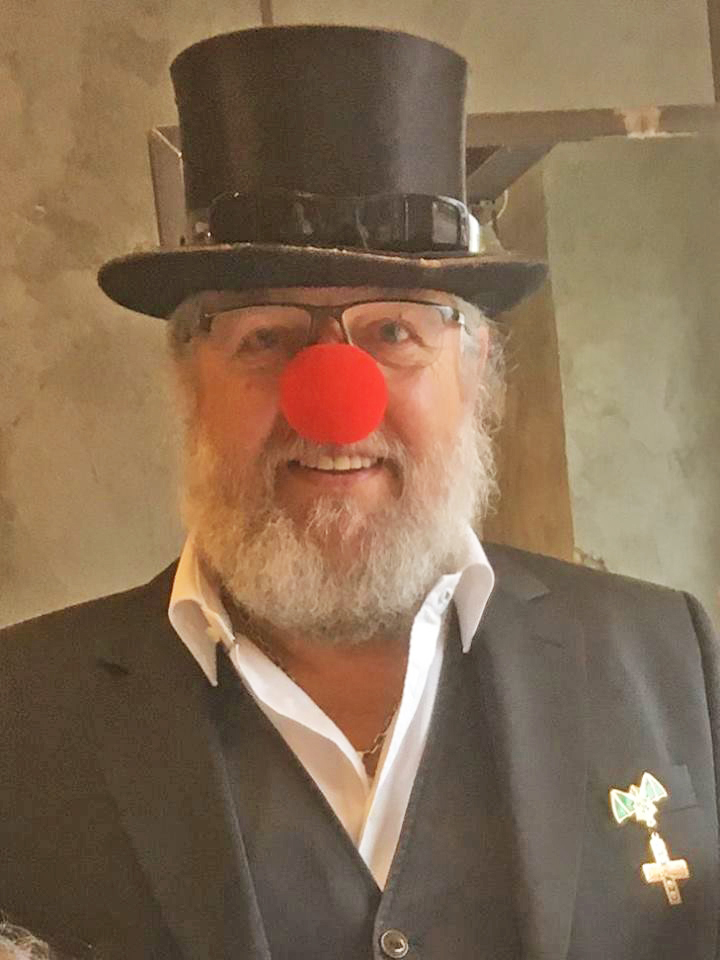
Looking back, what was the highlight of your time in the band? Which songs are you most proud of? Where and when was your most memorable gig?
Jürgen Weritz: In retrospect, there were many highlights and a lot of fun among the band’s members. But it was also pretty hard times, you were shit enough and cheated around the fees. With little money we set off early in the morning to play a gig 500 km away in the evening. And when the organizer says “Sorry guys, I can’t give you money, unfortunately”, then you have a big problem.
Proud is the wrong term. When I listen to our music today I remember the incredibly nice time together with great guys. We all had only one thing in mind – music … (ok, now and then girls too) – and we did our best for it. We found great melodies and wrote stories that were as exciting as they were profound, which was quite unusual at the time. And even today we don’t have to be ashamed of it, considering the circumstances and opportunities we have had.
We had a lot of memorable performances, starting with gigs without fees, gigs open air in bitter cold (we gave the visitors warm-up alcohol), an open-air festival at Pentecost in Rötz with snow and mud and always gigs with unexpected events (at a fire show there was suddenly no extinguishing water for the burning hands or in the highly unhealthy fog sparked by our roadie, I was in danger of falling off the pedestal).
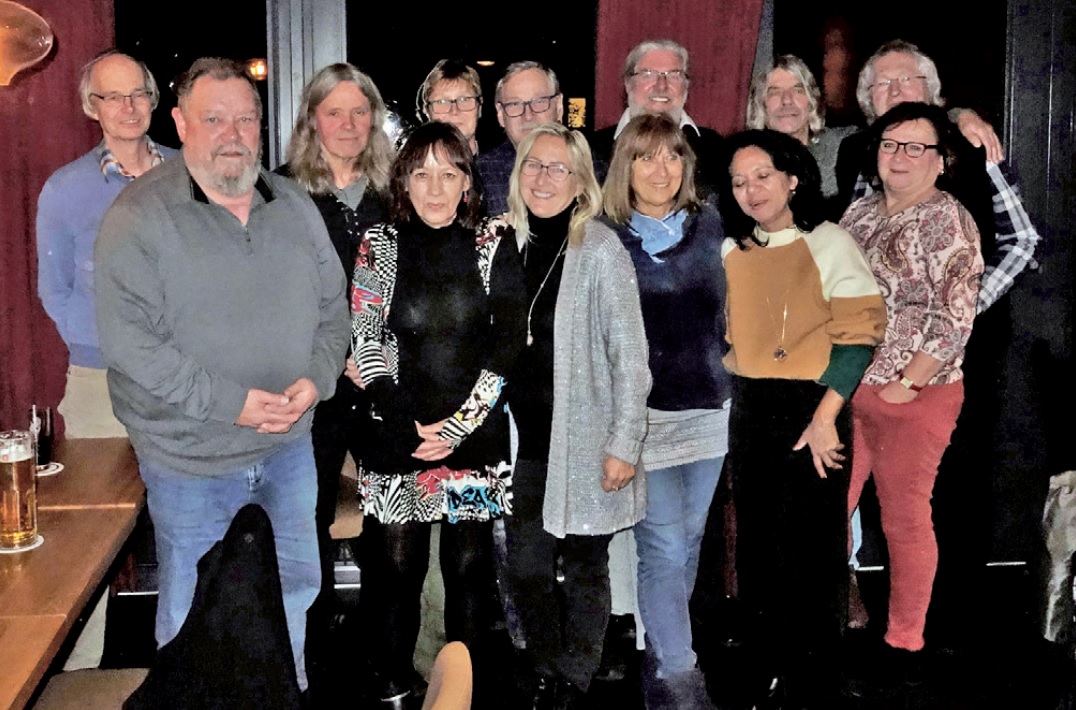
The music brought us a lot, from Berlin (Dachluke, Quarter Latin) to Sylt and Hamburg (Fabrik) and to the Bavarian Forest, the music brought us together with many nice musicians and friends. It was a really great time!
Manfred von Buttlar: In my memory the band was a real great team not only concerning our beloved music. We had to develop and optimize not only our music but also everything around: music equipment, light show, cars and transporters, etc. And fortunately we became and stayed very good friends and partners until the time being, there was much fun even in difficult times, over all it was a really good time, maybe the best of my life.
Is there any unreleased material?
Jürgen Weritz: The CD which was recently re-released has five very old tracks from the band’s days in the early 1970s. Then I had tapes of our first appearances at the festival at our school, which were unfortunately stolen. Then I still have faint memories of some pieces, unfortunately never recorded, that were created in the late 1970s. Then that’s it.
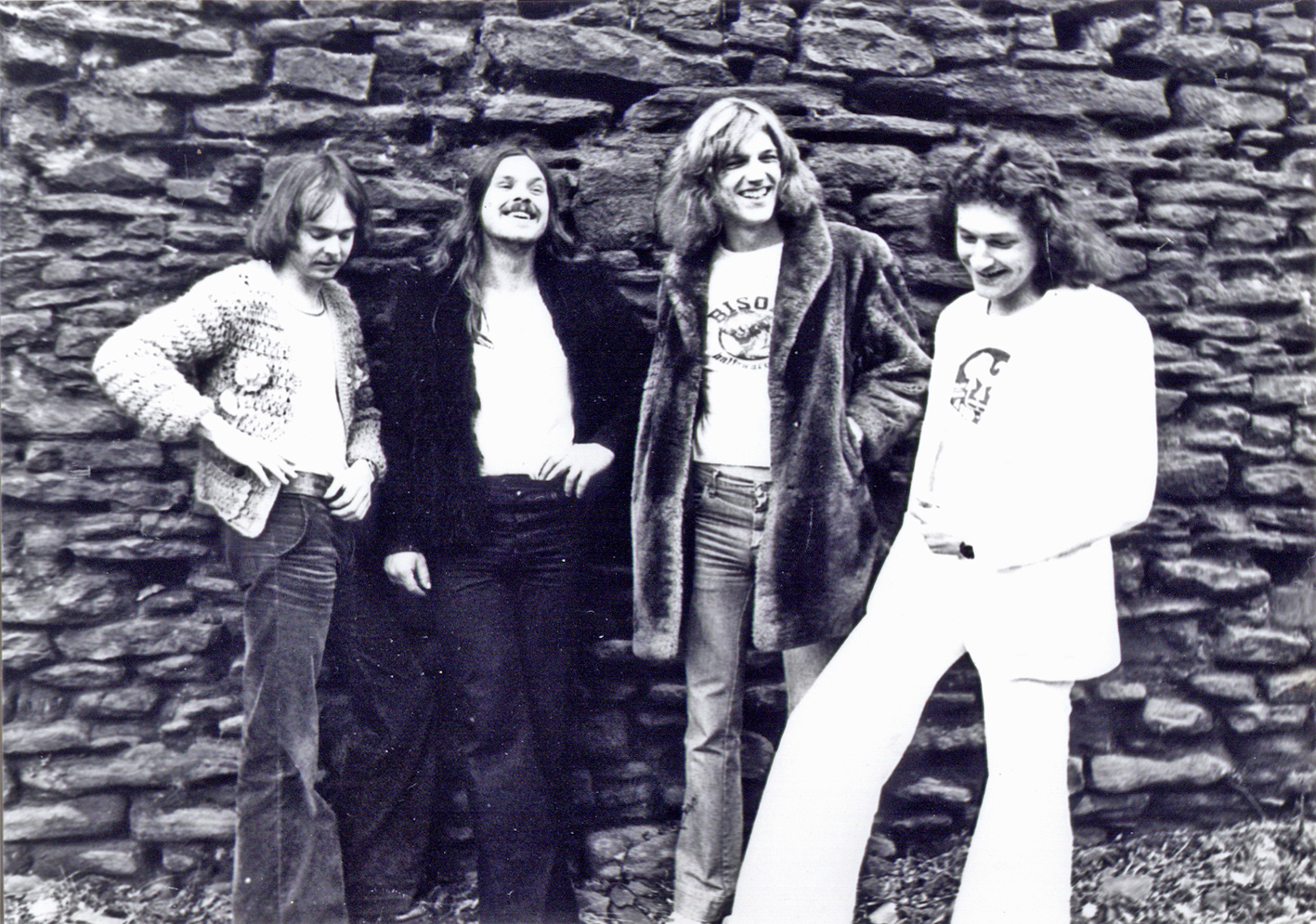
Thank you for taking your time. Last word is yours.
Jürgen Weritz: I think it’s nice that other people also remember the early Faithful Breath. Many thanks to you and all your interested readers! All the best to you!
– Klemen Breznikar

